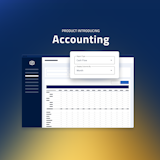Section 8 Housing Debrief For Landlords
Section 8 helps low income families afford housing through a government voucher program. In other words, the government pays a portion of the rent for tenants on this program. The government portion of the rent is sent directly to the landlord and the tenant, in turn, only pays 30% of their income on housing.
Benefits of accepting Section 8
Section 8 has several benefits when it comes to being a landlord. First, payments tend to be more guaranteed. The government pays housing vouchers on time and has never defaulted historically. Section 8 tenants also pay ontime as they run a risk of losing the voucher if they are late or delinquent.
Reducing turnover and vacancy rates is another reason landlords enjoy having Section 8 tenants. These tenants have mentioned difficulty with finding and qualifying for housing. Therefore, once they find a place to live, they are more likely to remain for a longer duration of time. Furthermore, when it comes to rent increases, the government is typically paying the majority of the rent so there is less backlash from the tenants.
Reasons some landlords are reluctant to Section 8
It might be harder to terminate a lease with a Section 8 tenant in some states. Regardless of whether the tenant is on Section 8, you must give proper notice and documentation. But, depending on your state, Section 8 landlords may have to notify the local housing authority who can either approve or disapprove of the termination. If they disapprove, you can still terminate the lease with your tenant, but the local housing authority will be a co-defendant in the eviction hearing.
Local housing authorities have a rigorous inspection process. You can find the complete checklist on the Housing and Urban Development website. While a landlord is required to maintain the property up to these standards, some landlords have voiced that their Section 8 tenants do not take as much care with the rental. Since the tenant is not paying the majority of the rent, they might be less inclined to keep the property in good condition. If there are damages, the landlord may be left with the cost of repairs. At the end of this article, we’ll tell you how to prevent this from happening.
How rentals can qualify for Section 8
Qualifying a property for Section 8 housing is relatively simple. You must first contact your local Public Housing Office, review all of their requirements and make sure you meet them. Next, you need to set up an appointment with an inspector from your local Public Housing Office. They will be checking that the property is in order and that the rent you are charging is reasonable. After this, you will need to fill out a W9 form, which you can learn more about here. After these steps are complete you can start finding tenants.
What to prepare for the housing inspection
When the tenant first finds a rental that they wish to occupy, the Public Housing Agency or PHA will inspect the property to make sure that the requested rent is reasonable. You will also have to undergo another inspection that guarantees that your property meets the requirements set by the Department of Housing and Urban Development. Some examples of what inspectors are looking for include:
- Smoke Detectors
- Trash disposal
- Sanitary Condition
- Electricity
- Lead-Based Paints
If your property passes inspection, then you are good to go. If your property fails, then you need to fix whatever did not pass inspection. Your property might be marked as inconclusive if the inspector needs more information or if the inspector can't get access to something like a water cooler.
How to know if a tenant is eligible for Section 8
Vouchers are distributed by local public housing agencies (PHAs) and eligibility is determined by income. A family is eligible if their income is below 50% of the median income of the county in which the family resides. However, 75% of the vouchers given are given to families that are under 30% of the average income of a county.
How to sign with a Section 8 tenant
Landlords must provide housing that meets the requirements of the U.S. Housing and Urban Development (HUD). After meeting with the tenant to sign an agreement, the landlord and the PHA must also sign an agreement since the vouchers go directly to the landlord. After 1 year, the landlord can change the lease or allow the tenant to remain on a month-to-month lease agreement, assuming you are abiding by local tenant-landlord law.
The tenants still have responsibilities
Tenants have to sign a lease for at least 1 year and pay their rent on time. Tenants also might have to pay a security deposit if the landlord requires one. Tenants need to remain transparent when it comes to their income. So, if their income does change, they need to let the PHA know in order to maintain housing vouchers.
Tips to succeed with Section 8
If landlords have a good screening process and chose their tenants carefully, Section 8 is a good guarantee that their rent will be paid on time since it comes from the government. Landlords should also stay up to date with inspections and conduct move in/move out inspections so that when the housing department does inspect your rental for Section 8 you will most likely pass right away. Another tip is taking out insurance like rental insurance and property liability insurance to make sure all your bases are covered.
Do I have to accept Section 8?
- In certain states, you can deny Section 8. In other words, you can just write “no section 8” on your rental advertisement. These states consider the Section 8 voucher to not be considered a source of income (Fair Housing) and therefore you are allowed to discriminate.
- When your state does not allow you to discriminate against Section 8, you can still require the tenant to objectively qualify based on your criteria, such as credit score minimum.
Here is a list of states where you cannot discriminate against Section 8:
- California
- Connecticut
- District of Columbia
- Delaware
- Illinois
- Maine
- Massachusetts
- Minnesota
- New Jersey
- North Dakota
- Oklahoma
- Oregon
- Utah
- Vermont
- Washington
- Wisconsin
Here is a list of states where you can discriminate against Section 8: (Note: There may be city and county restrictions, so please check with your local rent board.)
- Alabama
- Alaska
- Arizona
- Arkansas
- Colorado
- Florida (except Hillsborough, Broward and Miami-Dade Counties)
- Georgia
- Hawaii
- Idaho
- Indiana
- Iowa
- Kansas
- Kentucky
- Louisiana
- Maryland
- Michigan
- Mississippi
- Missouri
- Montana
- Nebraska
- Nevada
- New Hampshire
- New Mexico
- New York
- North Carolina
- Ohio
- Pennsylvania
- Rhode Island
- South Carolina
- South Dakota
- Tennessee
- Texas
- Virginia
- West Virginia
- Wyoming




